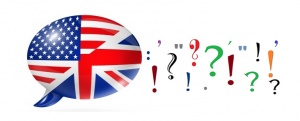Difference between revisions of "Language/English/Grammar/Punctuation"
| Line 1: | Line 1: | ||
[[File:English-Punctuation.jpg|thumb|none]] | [[File:English-Punctuation.jpg|thumb|none]] | ||
In English grammar, there are many ways to punctuate sentences. I will try to go over all of them today. I will organize them based on what is used formally and what isn't. Before that, I'll tell you what " " those marks mean, as I will use them throughout the lesson frequently. " is used to quote what someone is, will, or has said. I'll use these when referring to examples such as "For example," take note that I say that later in the lesson. | In English grammar, there are many ways to punctuate sentences. I will try to go over all of them today. I will organize them based on what is used formally and what isn't. Before that, I'll tell you what " " those marks mean, as I will use them throughout the lesson frequently. " is used to quote what someone is, will, or has said. | ||
I'll use these when referring to examples such as "For example," take note that I say that later in the lesson. | |||
== Formal punctuations == | == Formal punctuations == | ||
Revision as of 12:38, 1 February 2019
In English grammar, there are many ways to punctuate sentences. I will try to go over all of them today. I will organize them based on what is used formally and what isn't. Before that, I'll tell you what " " those marks mean, as I will use them throughout the lesson frequently. " is used to quote what someone is, will, or has said.
I'll use these when referring to examples such as "For example," take note that I say that later in the lesson.
Formal punctuations
The following punctuations are used at the end of every sentence.
The question mark ?
? - The question mark, this is used at the end of a scentence that asks a question.
For example, "How are you?", "What are you doing today?", and "What are you wearing?"
The exclamation mark
! - The exclamation mark, this is used to show someone being loud, or very excited.
For example, "Oh my gosh!" and "I can't believe it!"
The period .
. - The period, this is used at the end of a sentence. It will always be used at the end of a sentence unless replaced by one of the punctuations shown above.
For example, "Hey."
The comma ,
, - The comma is used when pausing in a sentence or when making a list of three items or more.
For example, "I need to buy eggs, bread, and cake.", "I like dogs, cats, and rabbits.", and "hmm, alright."
The apostrophe '
' - The apostrophe, it's used in abbreviations or to show possession of something.
For example, "don't", "won't", "Lilly's book.", "Daniel's wallet."
the semi-colon ;
Please edit this part
the colon :
Please edit this part
the quotation marks “ ”
Please edit this part
the hyphen -
Please edit this part
brackets ( ) or [ ]
Please edit this part
the slash /
Please edit this part
Informal punctuations
These sort of punctuation are only used online and very sparingly at that.
Show action **
** - To show action, if you want to show someone what you're doing or act something out you will place it inside two * symbols.
For example, *waves*, *closes tab*, *jumps*
